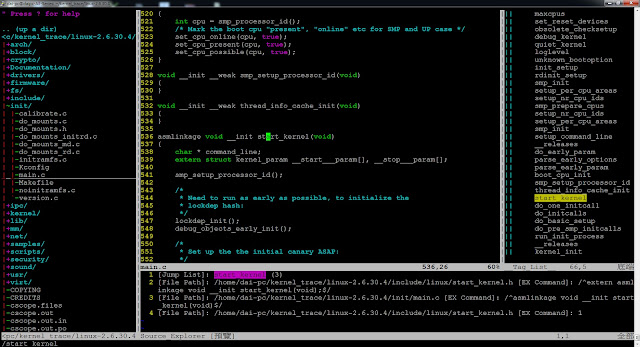[code小心得]程式除錯和gcc 巨集使用技巧
大家好 老樣子開頭 小弟又來嘴炮了 。
gcc 編譯過程中,會產生一些巨集。
可以使用這些巨集 分別列印當前原始檔的資訊。
ex:
printf("file: %s function:%s line:%d\n", __FILE__, __FUNCTION__, __LINE__);
以上可列印
__FILE__: 表示當下編譯執行的成是檔案 檔名,字串型( char *)
__FUNCTION__: 表示當下執行的函數,字串型( char *)
__LINE__: 表示當下的函數行,整數型 (int)
相關的在這個網頁有提到
http://gcc.gnu.org/onlinedocs/gcc-4.4.7/gcc/Function-Names.html
#字串化 運算子
##連結運算子
PS: ##是C語言 預處理階段的連結運算子,可實現巨集引數的連結。
gcc 編譯過程中,會產生一些巨集。
可以使用這些巨集 分別列印當前原始檔的資訊。
ex:
printf("file: %s function:%s line:%d\n", __FILE__, __FUNCTION__, __LINE__);
以上可列印
__FILE__: 表示當下編譯執行的成是檔案 檔名,字串型( char *)
__FUNCTION__: 表示當下執行的函數,字串型( char *)
__LINE__: 表示當下的函數行,整數型 (int)
相關的在這個網頁有提到
http://gcc.gnu.org/onlinedocs/gcc-4.4.7/gcc/Function-Names.html
#字串化 運算子
##連結運算子
#define test(x) test ## x
void test1(int a)
{
printf("Test 1 integer: %d \n",a);
}
void test2(char * s)
{
printf("Test 2 String: %s \n",s);
}
int main(void)
{
test(1) (100);
test2(2) ("hello");
return 0;
} PS: ##是C語言 預處理階段的連結運算子,可實現巨集引數的連結。
#define DEBUG_OUT( fmt, args... ) \
{ \
printf("File: %s Function:%s Line: %d",__FILE__, __FUNCTION__, __LINE__); \
printf( fmt, ##args );\
}
int a = 100;
int b = 200;
char *s = "string";
DEBUG_OUT(" a = %d;b = %d \n", a, b);
DEBUG_OUT(" a = %x;b = %x \n, a, b");
DEBUG_OUT(" s = %s;\n", s);

留言